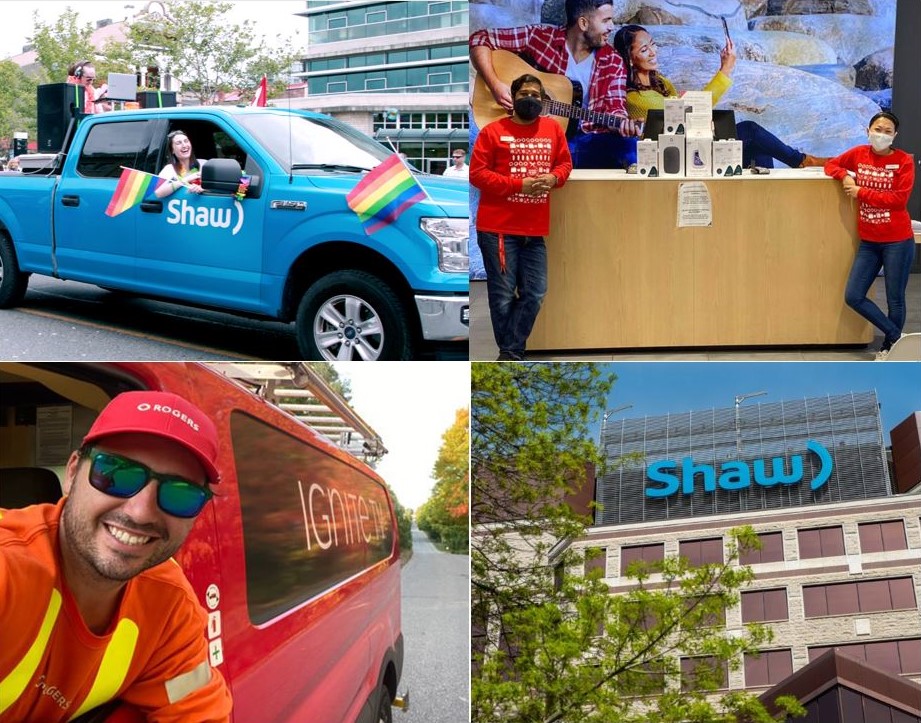Rogers, Shaw Agree To Put Merger Plans on Hold
Canadian regulators chafe at competitive aspects of deal; Rogers says divestiture of Shaw wireless business moving forward

The smarter way to stay on top of the multichannel video marketplace. Sign up below.
You are now subscribed
Your newsletter sign-up was successful
More than a year after they unveiled a merger valued at $20.6 billion that would create a cable and telecom powerhouse north of the border, Rogers Communications and Shaw Communications have agreed to put their union on hold as Canadian regulators grapple with the competitive aspects of the deal.
Rogers agreed to buy Shaw in a cash and assumed-debt deal valued at C$26 billion (US $20.6 billion) in March 2021. Among the benefits of the pairing were faster deployment of 5G wireless networks in Canada. Rogers, already the country’s largest provider of 5G service, pledged to invest C$2.5 billion (US$2 billion) in 5G networks across Western Canada, creating up to 3,000 new jobs. In addition, Rogers said it would create a C$1 billion (US$800 million) fund dedicated to connecting rural, remote and Indigenous communities to high-speed internet across the four Western provinces and spend another C$3 billion (US$2.4 billion) to support additional network, services and technology investments.
The deal was expected to close in the first half of 2022, but over the past few weeks Canadian regulators have expressed doubts about the deal. On May 9, Canada’s Competition Bureau said it was seeking to block the merger, “in an effort to protect Canadians from higher prices, poorer service quality and fewer choices, particularly in wireless services.”
On May 30, both Rogers and Shaw said they would postpone the closing of the merger while they worked with regulators to iron out any concerns.
“Rogers and Shaw strongly believe the Transaction is in the best interests of Canadian consumers, businesses and the Canadian economy, and that a settlement is the best path forward in ensuring that the benefits of the Transaction are fully and expeditiously realized,” the companies said in a press release.
The Canadian government’s main concern appears to be the combination of Rogers’ and Shaw’s wireless businesses. In the May 9 press release announcing its intentions, the Competition Bureau said that it has worked diligently over the past several years to diversify the Canadian wireless business, currently dominated by three operators -- Rogers, Bell Canada and Telus, with a combined 87% share of the market. Teaming Rogers with Shaw, according to the agency, would give the former access to the fourth largest wireless carrier’s 2.1 million Freedom Mobile customers, widening the gap between it and its closest competitors.
But what concerns the agency most is the impact the deal could have on pricing. According to the filing, Shaw has doubled its subscriber base since launching service in 2017 by aggressively pricing its service, offering bigger data allowances and other innovations. According to the agency, by its mere presence in the market, Freedom Mobile has forced the three largest carriers to retain customers, keeping prices down after they had been rising year-over-year.
The smarter way to stay on top of the multichannel video marketplace. Sign up below.
“The Bureau’s investigation has concluded that competition between Rogers and Shaw has already been lessened – and the harm to competition will only worsen if the proposed transaction is allowed to proceed,” the agency said. “For this reason, the Bureau has filed an application for an order to block the proposed transaction.”
Both Rogers and Shaw have said they would divest the Freedom Mobile business as part of the merger and that the process is advancing. Some reports indicate that Freedom’s buyer could be Xplornet Communications, a rural internet service provider owned by Stonepeak Infrastructure Partners. Stonepeak made news last year after buying Astound Broadband from TPG in a deal valued at $8.1 billion.
While the Competition Bureau’s objection to the merger could prolong the deal closing, few in the Canadian press believe it will quash the transaction, with several reports pointing to a recent attempt by the Bureau to block a merger between oil & gas waste services companies Secure Energy Services and Tervita Corp., that was ultimately consummated.
Investors don’t seem too concerned either. Rogers stock was down 5% ($2.62 each) to $49.36 on May 9 when the Competition Bureau’s objection was first made known, but has climbed back, closing at $51.26 per share on June 2. Shaw stock has had the same trajectory -- it was down 8% ($2.35 each) on May 9 to $26.73 per share, but has gained a lot of that back in subsequent trading, closing at $28.39 on June 2. ■
Mike Farrell is senior content producer, finance for Multichannel News/B+C, covering finance, operations and M&A at cable operators and networks across the industry. He joined Multichannel News in September 1998 and has written about major deals and top players in the business ever since. He also writes the On The Money blog, offering deeper dives into a wide variety of topics including, retransmission consent, regional sports networks,and streaming video. In 2015 he won the Jesse H. Neal Award for Best Profile, an in-depth look at the Syfy Network’s Sharknado franchise and its impact on the industry.

